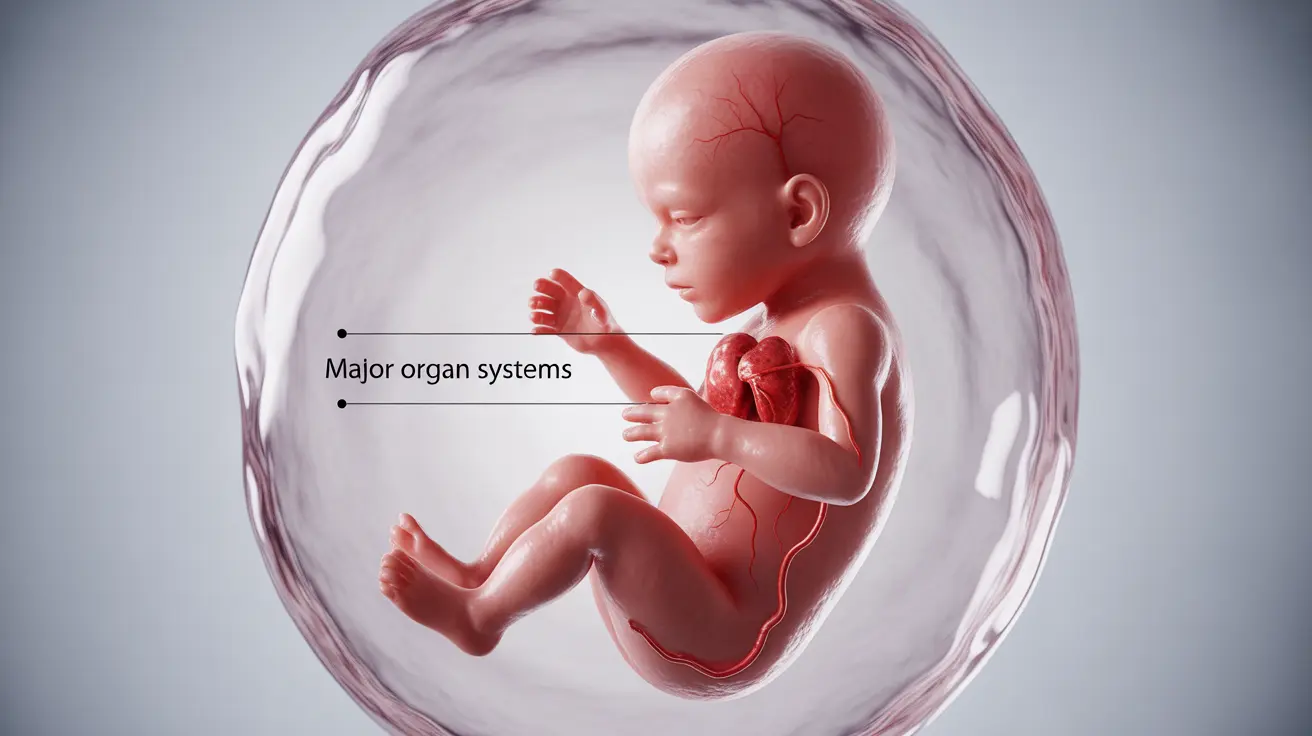Reaching the two-month mark in your pregnancy journey marks an exciting and transformative period. During this time, both you and your developing baby undergo significant changes that set the foundation for the months ahead. Understanding what to expect can help you navigate this crucial stage with confidence and prepare for the changes happening in your body.
At two months pregnant, you're approximately 8-9 weeks along, and your baby is rapidly developing from a tiny embryo into a recognizable fetus. This guide will walk you through the essential information you need to know about this important phase of pregnancy.
Baby's Development at 2 Months
During the second month of pregnancy, your baby experiences remarkable growth and development. The embryo is now about the size of a raspberry, measuring approximately 0.63 inches (16 mm) long. Major organs and structures are forming rapidly during this time.
Key developmental milestones include:
- Formation of major organs including the heart, brain, and lungs
- Development of facial features
- Growth of arm and leg buds
- Beginning of neural tube development
- Formation of primitive digestive system
Common Symptoms and Changes
At two months pregnant, you may experience various physical and emotional changes as your body adapts to support your growing baby.
Physical Changes
Common physical symptoms include:
- Morning sickness (nausea and vomiting)
- Frequent urination
- Breast tenderness and changes
- Fatigue and tiredness
- Mild cramping
- Food aversions or cravings
Emotional Changes
You might also notice emotional shifts such as:
- Mood swings
- Anxiety about pregnancy
- Heightened emotions
- Changes in sleep patterns
Managing Early Pregnancy Symptoms
There are several effective strategies to help manage common symptoms during your second month of pregnancy:
Morning Sickness Relief
Try these approaches to manage nausea:
- Eat small, frequent meals throughout the day
- Keep crackers by your bedside
- Stay hydrated with water and clear fluids
- Consider ginger tea or pregnancy-safe anti-nausea remedies
- Avoid strong smells that trigger nausea
Combating Fatigue
To manage pregnancy-related fatigue:
- Get adequate rest and sleep
- Take short naps when possible
- Maintain light physical activity
- Eat iron-rich foods
- Stay hydrated
When to Contact Your Healthcare Provider
While many symptoms are normal during early pregnancy, certain situations warrant immediate medical attention:
Emergency Symptoms
- Severe abdominal pain
- Heavy bleeding
- Severe dizziness or fainting
- Persistent vomiting that prevents fluid retention
- High fever
- Severe headaches
Frequently Asked Questions
What are the most common symptoms experienced at 2 months pregnant? The most common symptoms include morning sickness, fatigue, breast tenderness, frequent urination, and mild cramping. Many women also experience food aversions and heightened sense of smell.
How does the baby develop during the second month of pregnancy? During the second month, your baby develops major organs, facial features, and limb buds. The neural tube forms, and the heart begins beating. The embryo grows from about the size of a poppy seed to a raspberry.
Is it normal to have mild cramping and spotting at 2 months pregnant? Mild cramping can be normal as your uterus expands. Light spotting may occur but should be discussed with your healthcare provider. Heavy bleeding or severe cramping requires immediate medical attention.
What are effective ways to manage morning sickness and fatigue in early pregnancy? Eat small, frequent meals, stay hydrated, rest when needed, and consider ginger-based remedies for nausea. Getting adequate sleep, taking short naps, and maintaining light activity can help manage fatigue.
When should I contact my doctor if I have severe nausea or heavy bleeding during the second month of pregnancy? Contact your doctor immediately if you experience severe nausea that prevents keeping fluids down, heavy bleeding (soaking through a pad in less than an hour), severe cramping, or any concerning symptoms that worry you.




